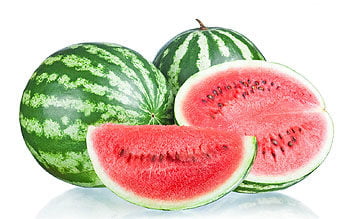Growing Hearts & Hope
 Set against the backdrop of a gorgeous range of the Blue Ridge Mountains, a small plot of freshly tilled dirt is receiving some special attention.
Set against the backdrop of a gorgeous range of the Blue Ridge Mountains, a small plot of freshly tilled dirt is receiving some special attention.
The planting season has started, and for the second year, inmates at the Swannanoa Correctional Facility for Women will be growing fresh fruit and vegetables—this season will feature crops of tomatoes, sweet peppers, corn, okra, melons, greens, turnips, and more.
This garden will once again provide fresh produce that the women at the correctional facility would otherwise not have access to. Each year, the inmates donate their excess crops to MANNA, so that those who don’t have enough food also benefit from the season’s bounty.
Planting Hope & Feeding the Community
“It’s a chance for the women to give back to the community,” says Sally Reeske, who has been teaching horticulture to inmates at the minimum-security facility for the last three years. “It’s something that they have said is very important to them.”
The benefits for the inmates are tangible. One woman described how energized she felt the day after eating fresh produce that came from the garden. With eight inmates currently managing the garden, they keep busy during the planting season. Last year, they grew enough watermelons to feed all 300+ inmates, three times!
When asked what has been one of the most powerful effects of the garden, Reeske says, “proving you can grow a lot of food in a small space, with only a few people, has had a big impact.”
“There are a lot of quantifiable and non-quantifiable benefits to the garden,” she explains. “I’ve been living in a room for so long,” says one inmate. “I need the exercise, the sunshine, and the fresh air.”
This year, the gardeners are taking their efforts even further, planting several rows of greens that will be donated to MANNA.
“Fresh greens are very important in our food supply at MANNA,” says Jen Waite, MANNA’s director of food sourcing. “It’s tough to find fresh greens that will keep long enough for us to distribute to clients through our partner agencies, because usually the donated produce is on its last life cycle by the time it reaches us. These greens will be fresh from the farm, and that is so important for the people we serve, particularly when fresh produce is one of the most expensive items at the grocery store.”
Keeping the Garden Growing
One of the limitations the program faces is limited volunteers to help oversee the operations. Right now, inmates can only attend to the garden when they are escorted by approved personnel, and that is about two times a week—certainly not enough for caring for multiple crops during the growing season.
Volunteers are needed as escorts so the growers can attend the garden. Escorting is simple and requires no physical labor. You can also donate to the gardeners’ efforts. Current needs include: a compost tea brewer; an easy-up tent for shade; a storage shed; folding chairs; fertilizer; fish emulsion; plastic plates, cups, and cutlery; finished compost; worm castings; manure; and an irrigation system.
If you are interested in being a volunteer, or donating supplies and tools, please contact MANNA’s Food Drive Coordinator, Justine Redden: [email protected].







